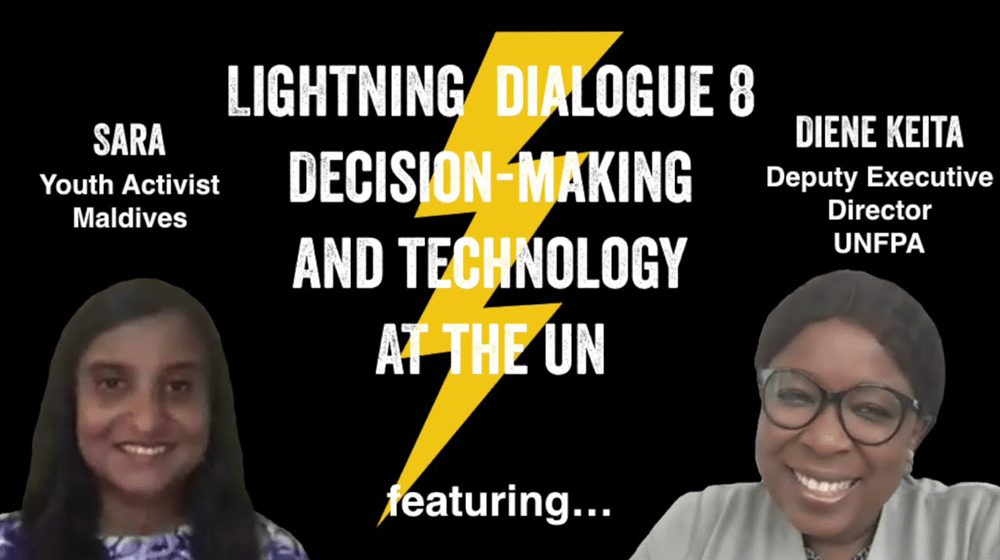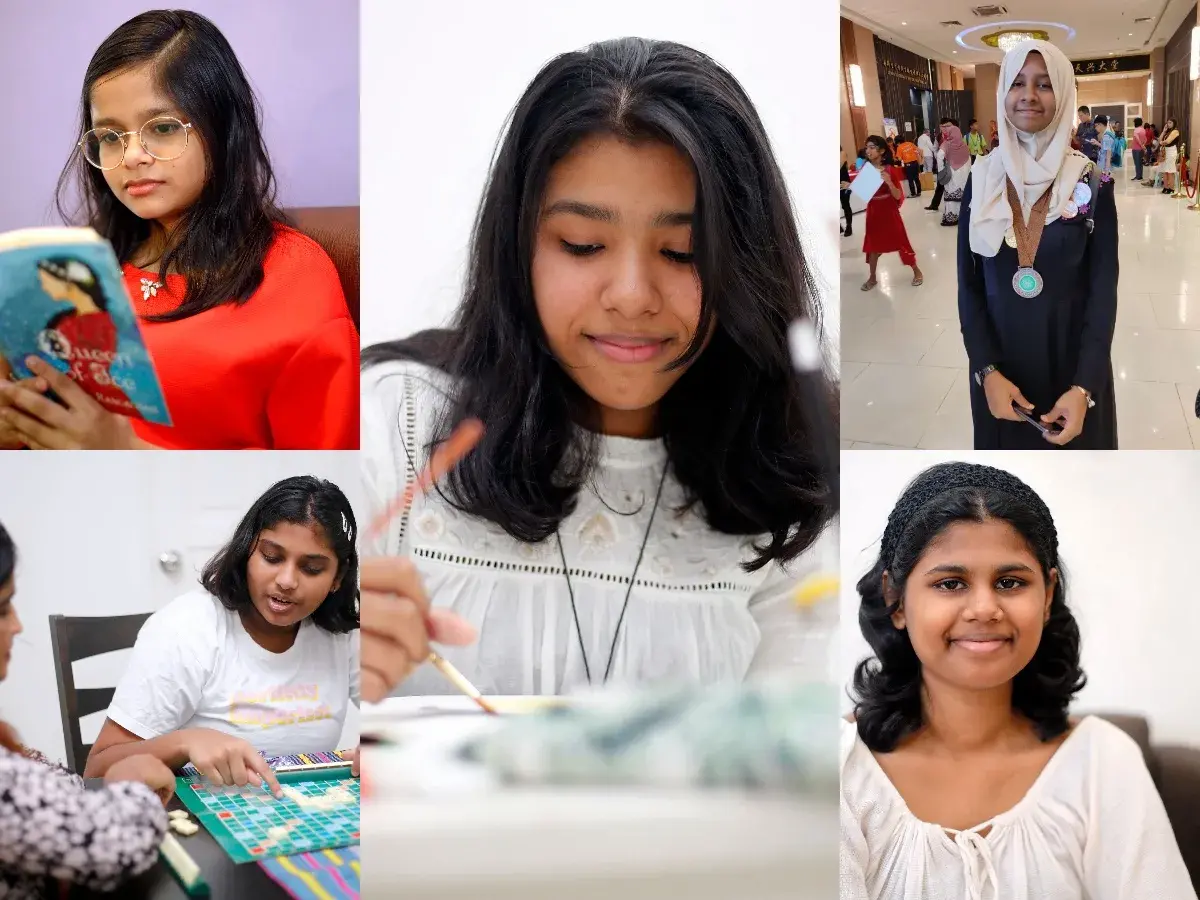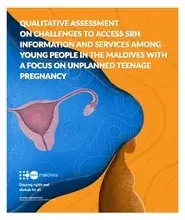On this International Day of the Girl, we remind ourselves of the progress achieved to advance girls’ participation by removing the barriers that limit the full potential of girls in contributing to society. By utilizing the digital space, UNFPA Maldives connected Sara Naseem, an advocate for girls and women’s empowerment in the Maldives, with the UNFPA Deputy Executive Director, Ms. Diene Keita to discuss young people's perspectives on sexual reproductive health and rights. This year’s theme is Digital Generation: Technology and innovation as accelerators of girls’ bodily autonomy. In a world structured by patriarchal notions that restrict girls and young women from participating in social and public life, such restrictions are also placed on the digital space. Girls are subject to online harassment and violence on different social media platforms.
In the Maldives, the access to digital space is almost universal with more than 90 percent of households with access to the internet. Nonetheless, alongside this, there is a dichotomy with the lack of informed and safe use of the internet and lack of engagement with young people for positive policy changes. The lack of access to the right technologies and connectivity continues to be a hindrance to the active participation of girls and young people in digital spaces.
In her conversation with Ms. Keita, Sara stresses how online spaces have become toxic, where women and girls are subject to gender based violence (GBV) and harassment. It is essential that these spaces are accessible and safe for young people to engage meaningfully. Sara reminds us of her start with the campaign Nufoshey (stop harassing), as a platform to share stories of any assault girls experience in order to shed light and bring an end to street harassment in the Maldives. The initiative really took off on social media platforms Facebook, Twitter, and Instagram – where girls, even from out islands, felt heard for the first time as survivors of GBV. This ground-breaking platform finally made harassment against women and girls visible to the Maldivian eye. It started the conversation around why girls are being harassed, where many of them shared their ‘me-too’ stories, bringing forth the idea that harassment is not warranted due to a particular dress or way of being.
UNFPA Maldives has been working with young people to meaningfully engage them in human rights mechanisms. Such is the case where Sara has advocated on issues of young girls through many international fora including at the 46th session of the Human Rights Council where the Universal Periodic Review was discussed. In her response she reiterated the lack of access to sexual and reproductive health services for adolescent girls, and the policy gaps in implementing comprehensive sexuality education (CSE) in the national curriculum. Sara was also part of the delegation at the Nairobi Summit to mark the 25th Year of ICPD - where she got the opportunity to highlight the importance of effectively implementing a comprehensive sexuality curriculum that ensures young people leave school with adequate information about their bodies and reproductive health services. It was indeed a timely opportunity to remind policy makers of the unfinished business in the Maldives and the children they may leave behind.
UNFPA continues to prioritise innovative and digital solutions to pave the way for young people especially girls to be visible and their voices heard on issues that matter to them. We strive to build networks of vibrant young people, who are championing and shaping their own future- informed and digitally equipped!





